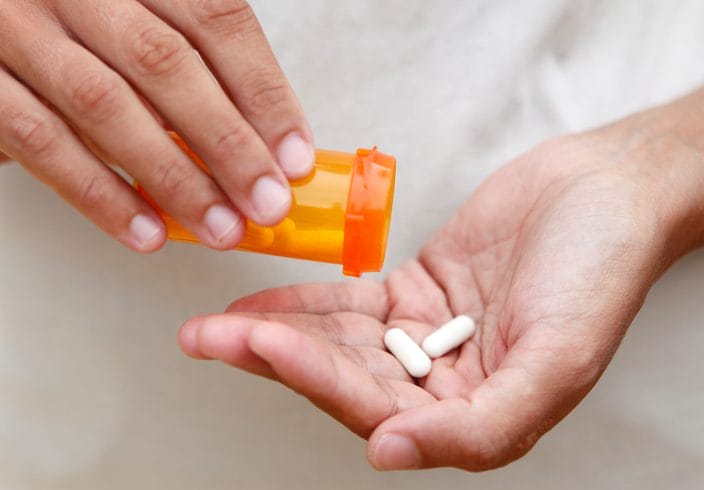 Photo: Getty
Photo: Getty Before you fly:
- Look at the airline’s website to find out what foods are served or sold on board. (Also, check Allergic Living’s Airlines and Allergy Policies Directory.)
- Call the airline and ask about their allergy policy before you book your ticket. You don’t want to find out by surprise that peanut satay is being served on your flight to Hong Kong.
- When you book, make sure to tell the reservations agent about your or your child’s allergies, and discuss accommodations you need (such as pre-boarding to wipe the seating area).
- Book a flight that’s earlier in the day. Planes get cleaned overnight, and there is less likelihood that nut snacks will be consumed in the morning. This means less chance of encountering the allergen on seats and in seat pockets, etc.
- Book direct flights when possible, to reduce the need to deal with multiple planes and flight crews.
- Bring your auto-injectors and/or asthma medications with you onto the plane (do not check them). Security may require that these medications show a prescription label in the name of the patient/traveler.
- It’s wise to carry an official doctor’s note stating that the medication is required for severe allergies or asthma.
When you fly:
- Tell everyone you deal with – the check-in agent, the staff at the gate, the flight attendants – about your child’s or your allergies. Even if the booking agent said you will be accommodated, play it safe and make sure everyone knows.
- Arrive at the gate early and speak to the staff before they’re too busy. Be clear, calm and polite.
- If concerned about allergen residue from previous passengers, ask to pre-board and wipe down the seats, tray tables and armrests. Another helpful idea is to bring an airplane seat cover.
- Bring plenty of wipes to wash your hands.
- Bring your own food. Don’t eat meals prepared by the airline’s caterers, even if a flight attendant tells you there are no nuts or other allergens. You don’t know if there has been cross-contact in the preparation. Bring extra food in case of delays.
- Keep medication with you; do not store it in the overhead bin.
- If someone near you is eating a food that is dangerous to you, politely explain your situation and ask if they would be willing to stop. If they are, say thanks and offer to buy them some food that is safe. If you don’t wish to engage with a stranger, try asking the crew if you can change your seat. This may depend on the airline policy. (See our directory as a starting point.)
- Keep your hands out of your eyes and mouth.
- Have a plan for what happens if you react.
- If you are reacting to something, tell the flight crew. It is important that they know about your condition.
After you fly:
- If you had a good experience, make sure to thank the flight crew for their efforts, and tell them you’ll definitely fly with the airline again. Email the airline’s customer service department, expressing your appreciation, and noting that you will travel with the company again and encourage others to do so.
- If you have an unpleasant experience, write to the airline and explain what happened. Tell them that you and your family will think twice before flying with the carrier again. Also include information about what could have made your flight better.
- You can also lodge a complaint with the U.S. Department of Transportation or the Canadian Transportation Agency.





